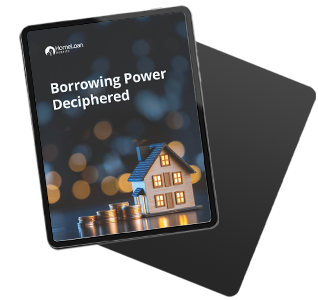How Much Can I Borrow Calculator
STEP: 1 of 7
Your Buying Plans
Tell us about your property buying plans to help us find the right options for you.
This calculator estimates your borrowing power based on your income, expenses, and debts. These are the same factors lenders consider.
We Have More Calculators To Help You With Your Situation.
Before You Buy: The Importance of Borrowing Power
The Secrets Of Borrowing Power And Maximising Your Mortgage Potential

Find The Lender That Lets You Borrow More
Our team will do the hard work for you, from application to settlement — and we’ll keep reviewing your loan even after you’ve moved in so your rate stays competitive.
Start With A Free Assessment
Borrowing Power FAQs
What Is Borrowing Power?
Borrowing power, also called borrowing capacity, is the maximum amount a lender may let you borrow for a home loan. It is worked out by looking at your income, expenses, debts, credit history and assets.
Each lender uses its own rules, so your borrowing power can differ depending on who you apply with.
How Is Borrowing Power Calculated?
What Should I Do If My Borrowing Power Is Lower Than Expected?
What Factors Affect My Borrowing Power?
How Much Can I Borrow For An Investment Property?
How Can I Improve My Borrowing Capacity?
Do All Lenders Calculate Borrowing Power The Same Way?
Does HECS Or A Student Loan Affect Borrowing Power?
Still need answers? We're here to help!
Ask an expertOur team of mortgage experts will assist you within 24 hours.
